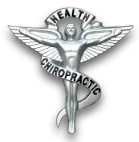What is Cold Laser Therapy?
Cold Laser Therapy, also known as Low level laser therapy is a painless, sterile, non-invasive, drug-free treatment which is used to treat a variety of pain syndromes, injuries, wounds, fractures, neurological conditions and pathologies. Laser therapy can be used any time a patient requests or needs a drug-less procedure for the control of pain, when conventional therapies have been ineffective, or when the acceleration of healing from injuries is desired.
Around the world, Cold laser therapy is rapidly becoming a medical therapy that can heal wounds and fractures up to 60% faster and also reduce the cost of treatment for many conditions. In the U.K., Laser Therapy has become the treatment of choice for soft tissue "whiplash" injuries and for the treatment of painful post-herpetic neuralgia (shingles pain).
How Does Laser Light Heal?
Healing with the use of laser light is not new. Light therapy was reported to be effective for many conditions by Hippocrates. With the development of the laser and its special properties, using light as a treatment has gained more popularity. This is because we can now use specific wavelengths of light and give accurately measured doses of energy directly to the appropriate treatment site, which was not possible with other light sources.
Low level lasers supply energy to the body in the form of non-thermal photons of light. Light is transmitted through the skin's layers (the dermis, epidermis and the subcutaneous tissue or tissue fat under the skin) at all wavelengths in the visible range. However, light waves in the near infrared ranges penetrate the deepest of all light waves in the visible spectrum. When low level laser light waves penetrate deeply into the skin, they optimize the immune responses of our blood. This has both anti-inflammatory and immunostimulate effects. It is a scientific fact that light transmitted to the blood in this way has positive effects throughout the whole body, supplying vital oxygen and energy to every cell.
What to Expect During a Laser Therapy Treatment Session
For most people, laser therapy is quite passive. There are no pulsating shocks felt, as in forms of electronic stimulation, nor heat used as with ultrasounds. The most noticeable sensation is the touch of the probe head of the laser, as it comes in contact with the skin.
Some patients (3-5% of those undergoing light therapy) have reported a slight tingling or tapping in a nerve or along a nerve pathway. Some have noted that they are able to sense a slight feeling of warmth. But for the most part, the treatment, which may last from 2 to 20 minutes, is not noticed at all.
Following (and even during) a laser therapy session, approximately 75-80% of patients being treated can notice an immediate improvement in their condition. This will depend primarily on the type of condition and the length of time the condition has been present.
Generally, the more chronic or severe the condition, the longer it takes to respond. The majority of conditions treated will take anywhere from 4-5 or 10-18 treatments. Once again, the number of treatments depends upon the severity of the condition and its duration. If your condition does not change immediately, it may take 3-4 sessions before a dramatic or marked change is perceived.
